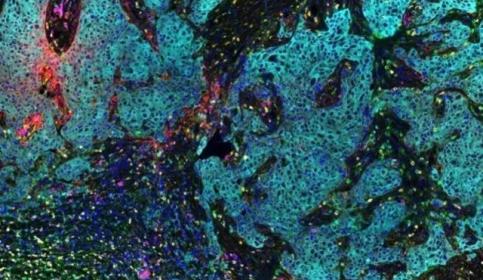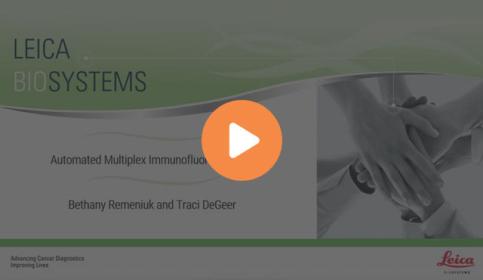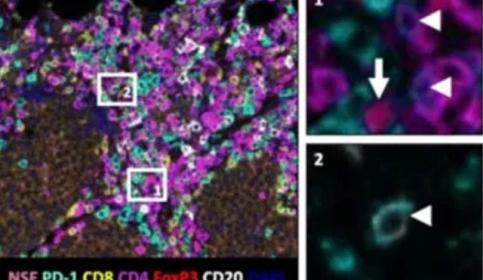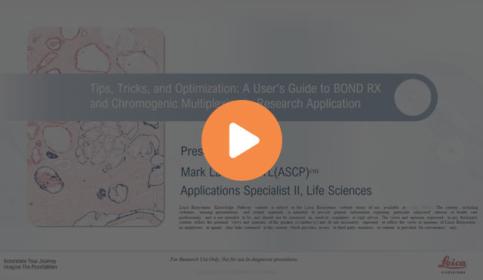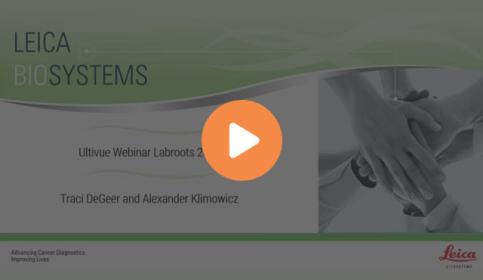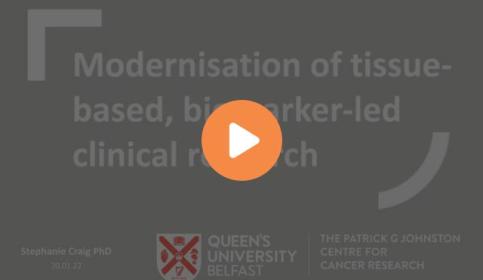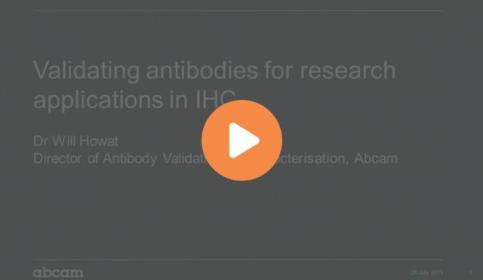IHC & Multiplexing
Researchers need clear results to discover new treatments. BOND RX fully automated research stainers provide the flexibility you need to explore new possibilities, accurate results to ensure nothing is missed, and rapid, cost-effective operation, so you can perform more tests.
Modern Multiplex Solutions for the Research Lab
Multiplexing addresses the need for researchers to assess multiple biomarkers (protein and/or nucleic acid markers) at specific locations within a tissue sample. The information revealed through simultaneous detection of multiple markers, the spatial relationships among cells and tissue in disease, and the heterogeneity are now understood to be critical to developing effective therapeutic strategies.
Automated Multiplex Immunofluorescence
Bethany Remeniuk Ph.D., Global Applications Scientist, Akoya Biosciences, Inc.
Traci DeGeer BS, HT (ASCP) HTL, QIHC, Director, Advanced Staining Innovation, Leica Biosystems
What Are Life Sciences?
Shubham Dayal Senior Medical Writer, Medical and Scientific Affairs, Leica Biosystems
Jack Heath Medical Science Liaison, Ph.D.
This article is the first of a four-part series including the following topics: “What is Life Science?” (current feature), “Translational Research,” “Spatial Research,” and “Biomarkers in Translational/Spatial Research.
Multiplexing In Tissue-Based Research: Chromogenic Staining and Automation
Rhian Evans Ph.D., Scientist
Immunohistochemistry (IHC) detects proteins of interest within whole tissue sections, keeping cellular organization intact.
Tips, Tricks, and Optimization: A User's Guide to BOND RX and Chromogenic Multiplexing in Research Applications
Mark Lawson, Applications Specialist, Leica Biosystems
In this webinar, Mark Lawson, shares the development timeline of immunohistochemistry (IHC) and multiplex staining on the BOND RX staining instrument, and its role in driving cutting-edge technologies.
Multiplex Fluorescence Immunohistochemistry using the Ultivue InSituPlex Platform on the Leica Biosystems BOND RX
Traci DeGeer BS, HT (ASCP) HTL, QIHC, Director, Advanced Staining Innovation, Leica Biosystems
Alexander Klimowicz Senior Principal Scientist, Boehringer Ingelheim Pharmaceuticals
Multiplex fluorescence immunohistochemistry (IHC) offers a window into the biology of human disease, enabling the analysis of target protein expression in subsets of specific cells within the context of histopathological features of disease.
The BOND RX Stainer - Automated Multiplexing Solutions
Rhian Evans Ph.D., Scientist
Leica Biosystems BOND RX stainer can aid biomarker and drug discovery by offering fast, customized, consistent, fluorescent or chromogenic multiplex immunohistochemistry (IHC) and ISH on your research samples. The result? Freeing up your time to innovate, investigate and discover!
Modernization of Tissue-Based, Biomarker-Led Clinical Research
Dr Stephanie G. Craig, Lecturer in Precision Medicine, Patrick G. Johnson Center for Cancer Research, Queen's University Belfast
In this webinar, learn how the Center for Cancer Research at the Queen’s University Belfast utilized automated staining and slide digitization as an aid to clinical research (for research use only. Not for use in diagnostic procedures) in immunohistochemistry (IHC), RNA in situ hybridization, multiplex immunofluorescence, and artificial intelligence studies.
Validating Antibodies for Research Applications in immunohistochemistry (IHC)
Will Howat Ph.D., Director of Antibody Validation & Characterization, Abcam
Damian Cockfield Global Product Manager - BOND, Leica Biosystems
The importance of building a validation structure within your lab cannot be overstated. Once in place, the ability to identify high-quality specific results compared to spurious, non-specific antibody staining on tissue will be easier and allow the researcher to focus on downstream applications, such as single and multiplex immunohistochemistry (IHC).
For Research Use Only. Not for use in Diagnostic Procedures.
